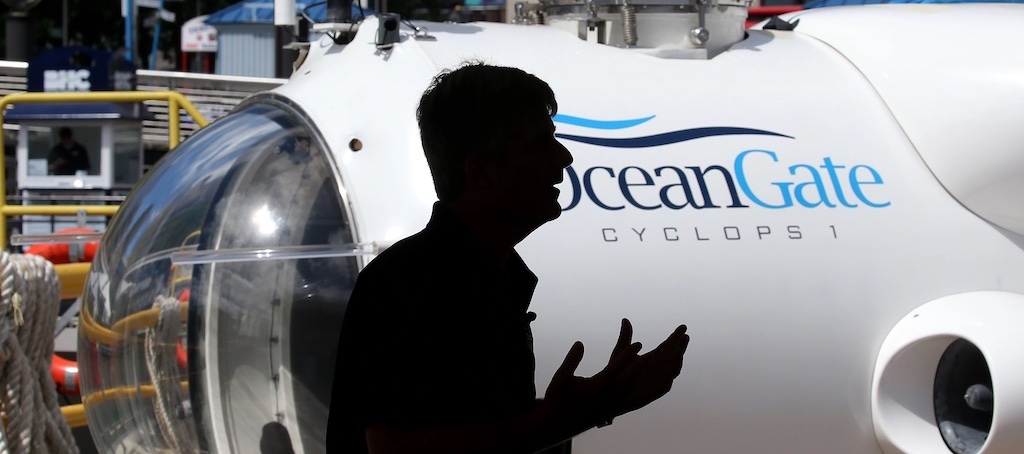
It’s been two weeks since a submersible on a mission to visit the wreckage of the RMS Titanic went missing, only for it to be later discovered that it imploded, killing five, including a teen who didn’t even want to go. The New Yorker already has a lengthy, comprehensive examination of the design flaws, the sketchy behavior, and the hubris that led to the tragedy. In short, plenty of corners were cut, among them hiring college interns to design the electrical system of the doomed vessel.
The piece unearths an article from 2018 by the WSU Insider, the school newspaper for Washington State University. In it, a former intern for OceanGate brags about how he had his fellow students were, while still in school, brought on board to work on a key component of a vessel that would have to survive a deep sea dive.
“The whole electrical system,” the ex-intern said. “That was our design, we implemented it, and it works.”
The New Yorker article painstakingly details how OceanGate CEO Stockton Rush, who died aboard the Titan, tried
to evade safety measures by doing things like structuring the company’s operations so0 that they were outside U.S. jurisdiction — and made sure they couldn’t get sued if they accidentally killed passengers:
In a legal filing, the company reported that the submersible was “being developed and assembled in Washington, but will be owned by a Bahamian entity, will be registered in the Bahamas and will operate exclusively outside the territorial waters of the United States.” Although it is illegal to transport passengers in an unclassed, experimental submersible, “under U.S. regulations, you can kill crew,” McCallum told me. “You do get in a little bit of trouble, in the eyes of the law. But, if you kill a passenger, you’re in big trouble. And so everyone was classified as a ‘mission specialist.’ There were no passengers—the word ‘passenger’ was never used.” No one bought tickets; they contributed an amount of money set by Rush to one of OceanGate’s entities, to fund their own missions.
Throughout the development of the submersible that would later kill him, Rush stubbornly pushed back against concerns that he was endangering lives, including his own.
“We have heard the baseless cries of ‘you are going to kill someone’ way too often,” he angrily wrote to one colleague trying to talk sense into him. “I take this as a serious personal insult.”
Meanwhile, OceanGate is still advertising tours.
You can read the full New Yorker piece here.
